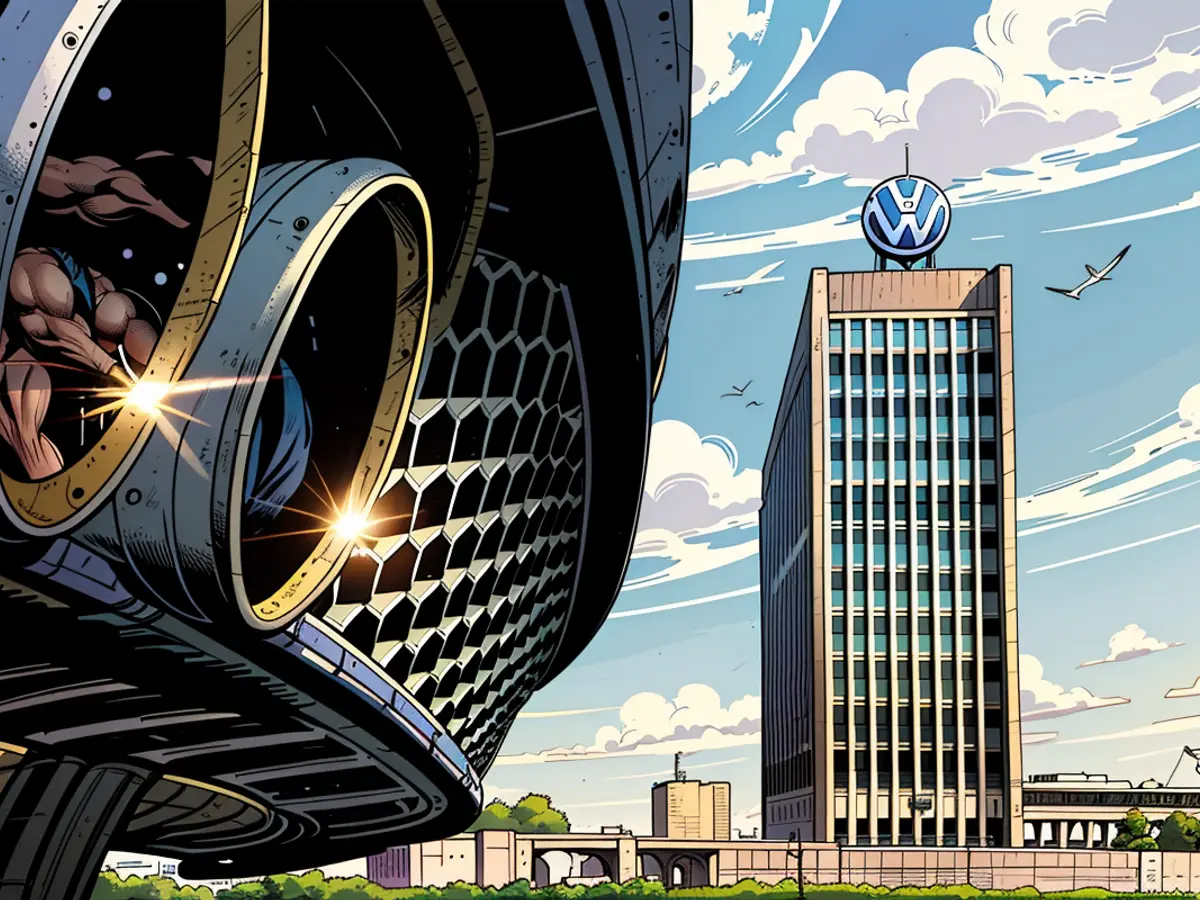- Volkswagen intends to instill uncertainty among its employees - commendation from economists
Volkswagen is gearing up for a stormy staff meeting. Following Tuesday's revelation that plant closures and layoffs are no longer off the table, the executive team will face queries from employees on Thursday. The works council chairwoman, Daniela Cavallo, anticipates strong displays of discontent during the gathering in Wolfsburg. "The workforce is understandably uneasy at the moment," and this sentiment will be vocalized on Thursday when brand head Thomas Schäfer and group CEO Oliver Blume take the stage.
Meanwhile, economists have voiced their approval. "The proposed measures are long overdue to prompt a turnaround and prevent a crisis," said Marcel Fratzscher, president of the German Institute for Economic Research (DIW). Industry expert Stefan Bratzel from the Center of Automotive Management (CAM) in Bergisch Gladbach described it as a necessary wake-up call. Without drastic steps, Volkswagen could end up requiring restructuring within a few years. "The situation is still manageable, but in a few years it could become existentially threatening." Act now, "and that can't be done delicately," he added.
Tenure protection after three decades revoked
Europe's leading carmaker declared on Tuesday that it would intensify its cost-cutting measures for the main brand VW in view of the deteriorating situation. The arrangement with the works council to guarantee employment until 2029 will be scrapped after 30 years, and the shutdown of entire German facilities will no longer be out of the question. The union and works council immediately declared massive opposition. IG Metall district leader Thorsten Gröger labeled it as a "reckless scheme" that "shakes the very core of Volkswagen."
CDU head Friedrich Merz viewed Volkswagen's intensified fiscal austerity as an economic policy wake-up call for the federal government. "Germany isn't competitive enough," Merz criticized at a CDU event in Osnabrück. This applies not only to Volkswagen, but also to large portions of the German industry - besides the automotive sector, also chemicals and mechanical engineering, Merz explained. Above all, the political environment is responsible for this.
Federal Minister of Economics Robert Habeck stated regarding the VW crisis: Decisions must be made in close collaboration with the social partners, and the goal must be to maintain Germany a robust automotive hub. "All parties involved must uphold their responsibility to the employees at the sites." Habeck regarded the automotive industry as a cornerstone of Germany's industrial base. "That should continue to be the case."
Economists reject state bailout
Leading economists advised politicians against implementing targeted rescue measures to prevent impending plant closures. "Politics should stay out of this renovation and avoid the mistake of maintaining antiquated structures and hindering the necessary transformation," stressed DIW President Fratzscher. "The lack of future sustainability of Volkswagen is primarily due to its own poor decisions, not the fault of politics."
Veronika Grimm, a member of the Council of Economic Experts, also warned against direct state intervention. While the state does have a role in facilitating structural change, "directly saving the automotive industry is not the answer," she told the "Rheinische Post."
Federal states defend their sites
Lower Saxony's Minister President Stephan Weil previously urged Volkswagen to avoid plant closures. Despite acknowledging the need for action at Volkswagen, the SPD politician, who also sits on the company's supervisory board, said, "We hope that the question of closing locations will not even arise if viable alternatives are employed." The state government will place a special focus on this matter. Lower Saxony is Volkswagen's most important location, with plants in Wolfsburg, Emden, Braunschweig, Hannover, Salzgitter, and Osnabrück.
Saxony's Economics Minister Martin Dulig (SPD), whose state houses three Volkswagen plants, expressed concerns following the company's announcement. "The Free State stands by all Saxon locations and wholeheartedly supports our colleagues in Zwickau, Chemnitz, and Dresden," he stated in a declaration. Notably, the pure electric vehicle plant in Zwickau is currently grappling with weak demand for electric vehicles. Dulig backs calls to reintroduce a sales incentive for electric vehicles. Electric car sales significantly decreased after the federal government discontinued the previous purchase subsidy in 2023.
The Commission, comprising economists and experts, has collectively approved of Volkswagen's proposed cost-cutting measures. Following the revelation of plant closures and layoffs, Robert Habeck, the Federal Minister of Economics, emphasized the importance of collaborating closely with social partners to maintain Germany as a robust automotive hub.








